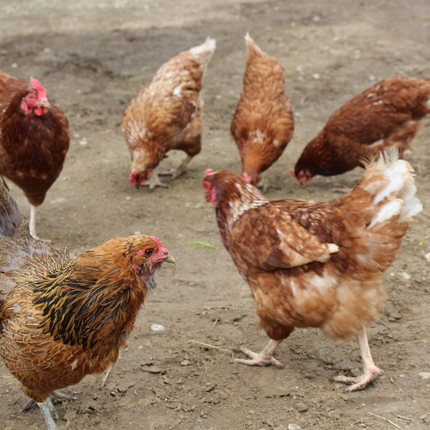Economic opportunity is vital to rural communities. Although poultry and livestock production is integral to rural economies, decades-long shifts in the poultry and livestock industry have pushed many producers out of the business and made it tough for those who remain. Packers and processors were once more willing to purchase animals that individual producers owned, bred, and raised themselves. Now, much of the industry prefers to purchase animals that producers raise under contract. The meat-packing industry holds nearly unchecked power over the terms and administration of these contracts, and farmers have limited to no access to other markets. Farmers face a hard choice: raise animals under contract and take on the associated risk, or leave.
The federal government has a responsibility to rein in the power of these processors. The U.S. Department of Agriculture (USDA) plans to release a rule this year that would provide an opportunity to bring greater fairness for producers in the industry.
USDA could make many rule changes that would improve conditions for contract producers and make the industry more accessible to beginners. But, packers and processors hold a great deal of power, and USDA will not make these positive changes for farmers unless they hear wide and broad support from rural America.
Trouble in poultry and livestock production
What does contract poultry and livestock production refer to? Farmers enter into a contract with meat processors that requires the processor to provide various inputs while the producer does the work of raising the animals. These inputs can include animals, such as chicks or piglets, and feed. After the producers raise the animals for an allotted time, a representative for the processor takes the animals back for processing, and the producer is paid generally according to their final weight.
At every step of this process, the packing or processing company holds the power. Initially, the processor takes on none of the infrastructure cost of animal production. Producers regularly have to take on a very high level of debt to build and maintain the needed infrastructure to enter into a production contract. This leaves most producers with very little financial resiliency against losses from sick animals or weather impacts on their growth—and crop insurance won’t cover animals raised under contract.
For any reason, the processor can also deliver smaller chicks or piglets, or substandard feed, and the producer will lose money at final sale when their animals are smaller, weaker, or sicker. If a producer tries to protest receiving substandard feed or smaller animals, the processor is legally allowed to retaliate by continuing to deliver smaller animals or low-quality feed, and offering a less favorable contract the following season.
In addition, processors are legally allowed to include confidentiality clauses in contracts, which they use to favor themselves. Perhaps most egregiously, if a producer challenges a processor in court for unfair treatment, they must show a processor’s actions hindered general economic competition for all producers in addition to hurting their own operation—an impossible standard.
Your voice needed: submit a comment
Producers deserve a more level playing field when raising animals under contract. Later this year, USDA will accept comments on a draft rule that may help address some of these issues. The Center for Rural Affairs will submit comments asking USDA to create fairer conditions for contract livestock and poultry producers, but our voice alone won’t be enough. Will you consider submitting a comment?
To learn more, watch our website at cfra.org/competition, which we will update with a template comment when USDA’s comment period is open. We’ll also include instructions on how to submit a comment to USDA which can be done easily and anonymously, if desired.
USDA needs to hear from rural America that unfair treatment to poultry and livestock producers cannot continue.





